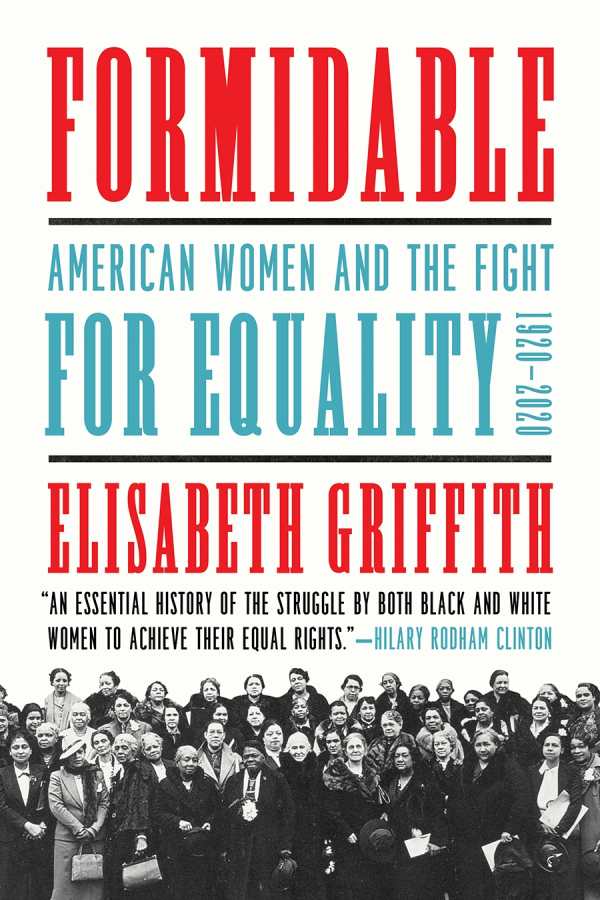
Formidable
American Women and the Fight for Equality: 1920-2020
In Formidable, Elisabeth Griffith relates how American women have approached political activism in the last century.
The Nineteenth Amendment is the book’s starting point: it granted certain American women the right to vote in 1920. Though it was a milestone, suffrage was just one of the many rights that activist women sought—and that they continue to seek today. The book covers topics including equal pay, job opportunities, access to child care, and abortion, noting that the diversity of America’s women means that they approach activism in different ways, and with different goals in mind. Indeed, women have clashed with each other as often as they’ve clashed with the patriarchal government.
The interplay between racism and sexism, Griffith argues, has also always been central to women’s fight for equality, even before the term “intersectionality” was coined. Differences in race, class, political party, and age split the women’s movement from the beginning, affecting how women chose to fight for causes dear to them. For example, traditionally, Black women like Ella Baker tended to work behind the scenes, while white women like Betty Friedan were more likely to become stars in their own right.
The book focuses most on white and Black women, with nods to Latinx, Asian, Indigenous, and queer women, too. It spotlights a long list of prominent, groundbreaking, and morally complex women, including Margaret Sanger, Frances Perkins, Sandra Day O’Connor, and Hillary Rodham Clinton. It ends with a summary of the progress that American women have made—and a sobering look at how far they still have to go to achieve complete equality.
The women’s movement is a flawed, complex entity that will continue to boost American women far into the future, argues Formidable, an overview of the diversity of American women and their role in political history.
Reviewed by
Eileen Gonzalez
Disclosure: This article is not an endorsement, but a review. The publisher of this book provided free copies of the book to have their book reviewed by a professional reviewer. No fee was paid by the publisher for this review. Foreword Reviews only recommends books that we love. Foreword Magazine, Inc. is disclosing this in accordance with the Federal Trade Commission’s 16 CFR, Part 255.
